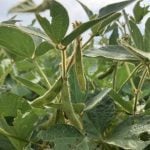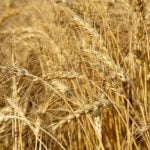Canada’s federal agriculture minister says the government is “ready to receive formal submissions” from provinces for AgriRecovery plans to help Prairie farmers and ranchers up against significant droughts this summer.
Marie-Claude Bibeau, summarizing discussions from Thursday’s online meeting with provincial and territorial (FPT) agriculture ministers, said the formal requests “are needed to trigger the process,” as both levels of government contribute.
AgriRecovery is the brand name for the FPT disaster relief framework, deployed on an as-needed basis during natural disasters to help farmers with “extraordinary costs.”
Read Also

Trump quadrupling Argentina beef tariff rate quota to 80,000 tonnes
U.S. President Donald Trump’s administration is quadrupling the tariff rate quota on Argentinian beef to 80,000 tonnes to reduce prices and protect American farmers, a White House official said on Thursday.
AgriRecovery programs, cost-shared by the federal and participating provincial governments, are launched in “situations where producers do not have the capacity to cover the extraordinary costs, even with the assistance available from other programs.”
During their meeting, the government said in a release, ministers “expressed their concern for farmers and workers dealing with the current heat waves, wildfires and drought conditions in Western Canada and other regions of the country.”
Bibeau’s Saskatchewan counterpart David Marit, for one, put his request in writing Thursday for an AgriRecovery assessment for the province, so as to “determine program requirements.” His letter CC’ed his counterparts in the four western provinces and Ontario.
Alberta’s ag minister Devin Dreeshen, in a separate statement Thursday, said the province has “received verbal commitment from Ottawa that a joint AgriRecovery program will be initiated to support Prairie producers affected by drought conditions prior to (a federal) election.”
Bibeau, in her summary tweets on Thursday, said Ottawa “will make sure our programs continue responding to the crisis” in the western provinces.
On that note she also asked that provinces hit by drought move to invoke the “late participation provision” of the AgriStability income stabilization program, “to help more farmers access the support they need.”
Bibeau also reiterated her previous request to the provinces that they match an earlier federal offer that would raise the AgriStability compensation rate to 80 per cent from the current 70.
The ministers’ statements follow requests earlier Thursday from the Canadian Cattlemen’s Association and provincial cattle associations on several drought-related measures, along with other recent requests from farm groups.
Among those requests, they called for drought relief programming under AgriRecovery to help with costs related to feed and water shortages as well as “impacts of wildfires.”
They also called on Ottawa to “immediately” set up the livestock tax deferral provision for this tax year, designating all of the Prairie provinces as well as parts of British Columbia and Ontario, but also to “extend eligibility to include all classes of cattle.”
That provision, if put in effect as it now stands, would allow producers in designated areas to temporarily defer tax owing on drought-induced livestock sales, but only on breeding stock.
Lianne Rood, the federal Conservatives’ ag critic, made the same request in a separate letter to Bibeau Wednesday, but cautioned that “a decision on this must be made quickly and cannot be delayed by the calling of a fall election.”
The cattle groups also called Thursday for governments to “expedite approvals for insured crops to be designated for livestock feed or grazing purposes” and allow parched crops to be grazed or converted to feed without penalty. Saskatchewan announced such a move Wednesday.
“Without timely and targeted assistance from federal and provincial governments, beef producers will be forced to make difficult management decisions including culling of their herds,” CCA president Bob Lowe said in a release Thursday.
“It is of critical importance that Canada’s beef cow herd be maintained throughout this disaster event.” — Glacier FarmMedia Network











